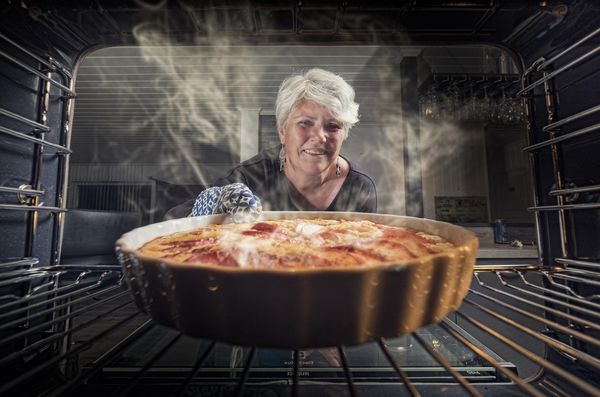Are you just getting started with baking? No need to worry, everyone has to start somewhere! Baking is a skill that takes practice and experience. This blog post provides easy baking tips for beginners to get started on their baking journey.
From reading the recipe correctly, understanding oven temperatures, to picking out the right cookware – these helpful tips will give you an edge in creating delicious baked goods at home.
So get ready to become an amateur baker as we explore all of these essential steps necessary for successful baking!
Easy Baking Tips for Beginners
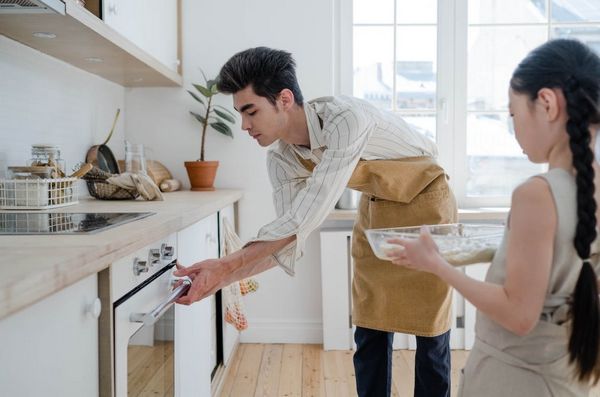
Below are the tips which you need to keep in mind even before you start baking your food.
1. Get Friendly with Your Oven
Every oven behaves differently, and by taking the time to get familiar with how your particular one works, you can avoid unpleasant surprises! Your baked goods will be cooked evenly when the right temperature is maintained throughout.
If you are well aware of your oven you will not waste the time in finding out the use of options available there. You can quickly pause/stop the baking, set the timer, select the mode etc without any hesitation. This avoids over- or under-cooking on different areas of your recipe.
2. Gather All Required Ingredients
Before starting your baking project, it is essential to gather all the ingredients you need. Having all of them ready will prevent any mix-ups while making the doughs and batters. Mise en place is an important principle in baking; it means having every ingredient and tool prepared in advance according to the recipe instructions.
Gathering up all the required ingredients ensures accurate measurements so that your baked goodies will turn out just as promised by the recipe! Not only would this save time from running back and forth searching for missing items, it also makes sure that your final result looks perfect after its done baking.
3. Read The Recipe Properly
It is essential for baking enthusiasts, especially beginners, to read the recipe properly before starting to bake. Not only do you familiarize yourself with the required ingredients and techniques but also ensure that all aspects of instructions are being followed carefully to get a desired result.
It helps avoid any potential disasters like adding too much flour or other materials leading to an ill-tasting or burnt outcome. Reading the recipe allows one to better understand the details required in order for something special and tasty to come out of their oven!
Moreover, noting down key points or diagrams can help enthusiasts more effectively incorporate changes as they become better at baking – such as reducing cooking temperature according to their oven’s settings.
4. Measure The Ingredients Accurately
Accurately measuring ingredients is one of the most important steps when it comes to baking. Proper measurements can be the difference between success and disappointment as slight mis-steps could mean under or over-baked goods.
In order to get consistent results, it’s essential that you measure dry ingredients correctly with a dry measuring cup specifically designed for dry ingredients, and liquid ingredients should be measured with liquid measuring cups.
This golden rule ensures that your batters, doughs and icings contain accurate amounts of sugar, flour etc – helping you achieve perfectly crisp cookies or cakes every time! An example of repercussions caused by improper measurements would be if too much salt or baking soda was used in a recipe – resulting in an unpalatable final product.
5. Use Room Temperature Ingredients
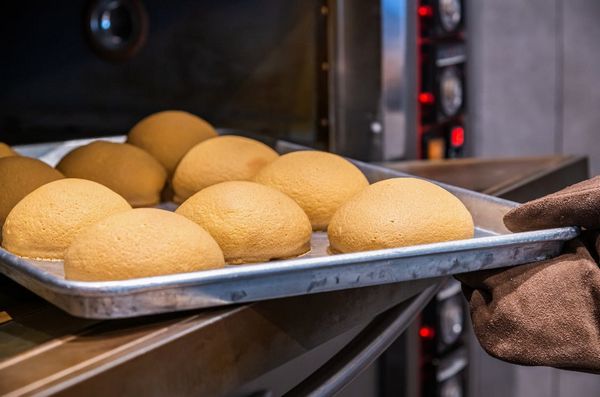
Using room temperature ingredients or melted ingredients as specified in the recipe is crucial for successful baking. Room temperature ingredients help to build a balanced structure needed for delicious and tender cakes, muffins, cookies, pies and other baked goods.
Cold ingredients can make it more difficult to blend and mix properly so having them at room temperatures assists with this step.
Using room temperature butter helps create the desired creamed consistency in many recipes that includes techniques like rubbing butter into dry flour based mixture known as ‘creaming’ or creaming butter and sugar together which gives a light fluffy texture when baked.
Main Baking Tips for Beginners
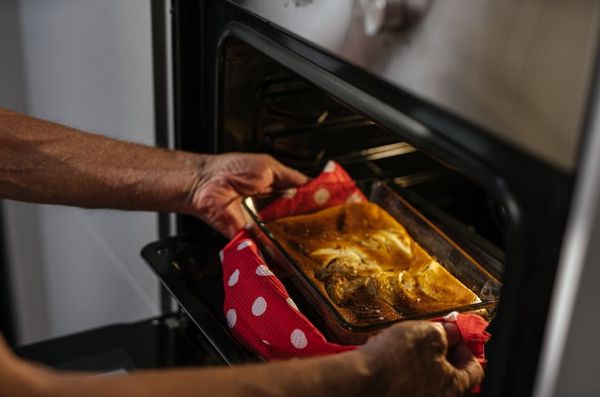
Below are the some important tips which you need to follow when you are baking your food.
1. Preheat The Oven
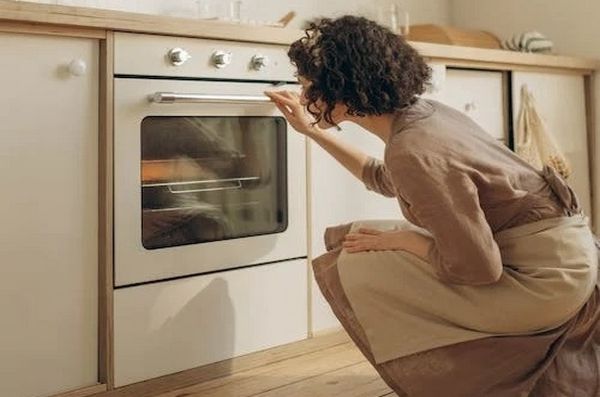
Preheating your oven before baking is an important step that is often overlooked but has a massive effect on the end result. The recommended temperature for preheating an oven to bake in most recipes ranges from about 175 degrees Celsius to 200 degrees Celsius, depending on what type of recipe you are making.
Preheating allows the heat inside to evenly distribute and ensures that all parts of your bake cook properly and at the right temperature. It also helps with consistency – ensuring every batch comes out tasting delicious!
Without preheating the oven, baked goods are likely to be unevenly cooked and lack structure- making them dry or chewy – not ideal for anyone’s dessert! So always ensure you double check that your oven is up to temperature before starting your baking adventure!
2. Use the Correct Cookware
As a beginner baker, it is important to take into consideration the types of cookware you are using. Different baking pans have different shapes and sizes, and this can affect the outcome of your bakes.
Choosing the right bakeware for your recipes will ensure that you get good results each time. The five basic cooking pans every novice baker should consider are sheet cake pans, loaf pans, muffin tins, round cake pans, and springform cake tins. Each of these has its own uses.
It’s important to choose the correct size pan when beginning to bake as this will affect the way your desserts turn out in terms of colour, shape and texture – so select a well fitted pan according to type of recipe at hand.
3. Size Matters: Cookware Sizes Affect Your Bakes
Cooking up a delicious treat doesn’t solely rely on the right cookware but also on the correct size of the cookware. Cake pans come in all sizes ranging from mini-sized molds perfect for portions like cupcakes to larger family-style crowd pleasers that can feed many people. The size of the pan determines the baking time and temperature required for a recipe.
A smaller pan will yield thicker cakes which are likely to hold their shape better, however, this usually means increased cooking time due to depth of cake mix; whereas using a larger pan will result in thinner cakes that bake quicker than those made with deeper batter.
Ultimately though it is imperative you use the specified size or else results may vary greatly — an important factor that isn’t always taken into account by novice bakers! Thicker and sturdier pans are recommended too as they conduct heat more efficiently leading towards uniform even baking every single time.
4. Use The Right Baking Technique
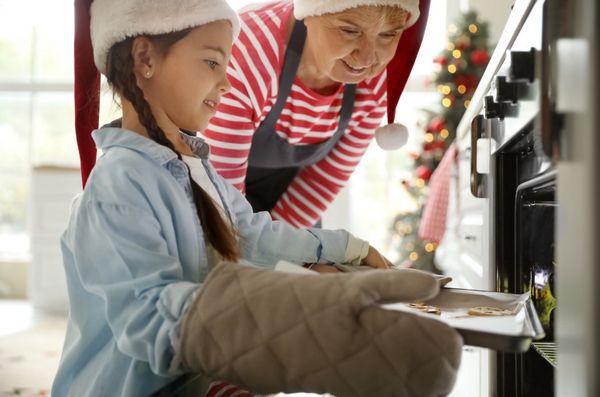
Having the right baking technique is essential for a successful and delicious results. From soft biscuits to fluffy sponges, mastering the many different ways of mixing dough ingredients is key to getting that desired outcome.
For instance when making cookies, creaming butter and sugar together correctly can be the difference between flat dense discs or puffy rounds – use an electric mixer rather than stirring with a spoon for best results!
When it comes to cakes, incorporating air into the mixture before baking will increase lightness; either by using an electric whisk or wooden spoon in conjunction with folding motions.
5. Check For The Right Temperature
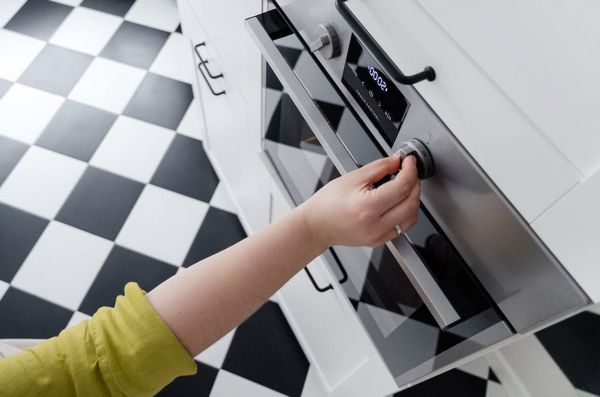
Ensuring the right temperature before baking is very important and can greatly affect the final product of baked goods. Different types of recipes such as lean-dough bread, quick bread, cakes, and cookies often require different oven settings.
To ensure successful baking it’s important to understand each bake’s unique needs for heat levels as off-set temperatures or spikes in degrees can lead to overbaked or undercooked products.
Aiming for the correct oven standards also means investing in an accurate thermometer so knowledge of one’s specific oven helps determine if the equivalent marked on your stove is dependable enough when preheating your oven.
Best & Final Baking Tips for Beginners
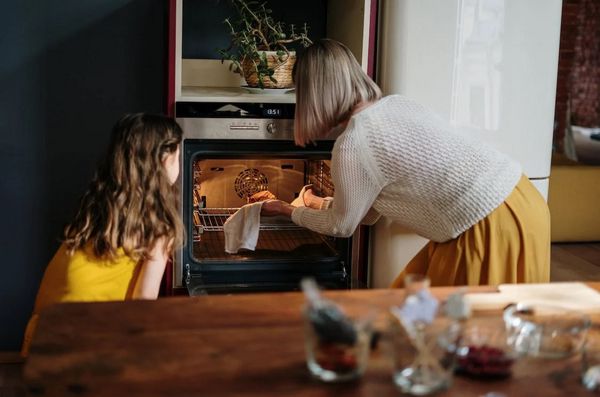
Below are the some of the best tips which you need to follow when you are baking your food.
1. Set a Timer
Setting a timer is an important tip for all baking beginners. A kitchen or smartphone timer can be used to keep track of time, as it helps the baker know how long they’ve been in the oven and prevents them from burning or underbaking their baked goods.
Timers also come in handy when performing other tasks related to baking such as setting resting times for dough or proofing times for yeast-based recipes; this way, bakers can focus on other details while the baked goods are cooking without worrying about leaving them too long in the oven.
2. Keep That Oven Door Shut Properly
Keeping the oven door shut while baking is essential for successful recipes. Opening and closing it too often can negatively affect results, especially when baking cakes or breads.
When heat escapes alternatively, it affects the level of humidity in the oven which will influence how your bake turns out. Additionally, opening the door too soon runs the risk of causing a cake to collapse due to its delicate structure not having time to set yet – don’t make this mistake!
To check on progress without disrupting moisture levels or losing heat, you can simply turn on light inside with most new models featuring a window and light option – never open that oven door while looking through that window!
3. Don’t Overbake
Baking to the correct amount of doneness is necessary in order to get great-tasting results for your baked goods. Overestimated baking time or temperature can lead to dry and burnt products, making them overly hard and unenjoyable.
To ensure you get perfectly cooked goods, experts suggest keeping a close eye on the baking progress and using a timer if necessary. Additionally, it is important not to overbake as this can impact the taste, texture, aesthetic appeal and overall quality of the finished product.
4. Try The Toothpick Test
The toothpick test is a straight-forward, practical way to check for doneness in baked goods, and it can help you prevent over-baking. It’s so widely mentioned in baking recipes because of its simplicity: once your cake, muffins or quick breads are done cooking in the oven, take out the pan or tray from the oven and insert a dry wooden toothpick into the center of your bake.
If it comes out clean or with only a few crumbs attached then that means your bake has cooked through nicely – if there’s still some moist batter stuck on to the pick then return your bake to the oven for an additional minute or two until cooked through properly.
5. Allow the Baked Goods to Cool Before Serving
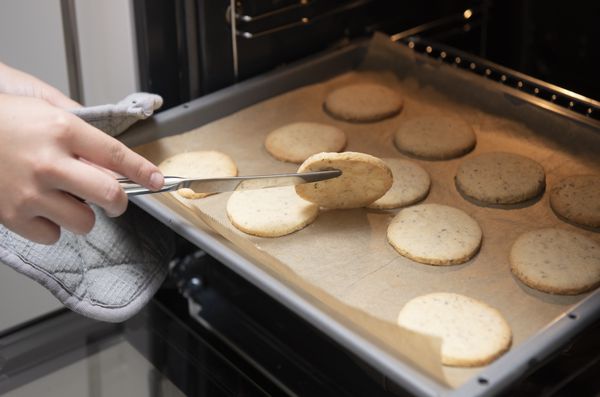
The cooling process is essential for every bakery good before serving. Allowing baked goods to cool down can be difficult, especially when served right out of the oven they look extremely delicious.
But it’s important that all bakers must understand that cooling down helps in avoiding any changes to the texture and structure of cakes post-baking. Cooling a cake allows the moisture from within to evaporate slowly, allowing them to firm up and prevent collapsing during frosting or transportation processes.
Final Words:
Baking can be an enjoyable and rewarding experience. With the right mindset, ingredients, equipment and techniques, aspiring bakers will have all the tools they need to create delicious baked goods.
Weighing ingredients is essential for accuracy of measurements in baking while room temperature ingredients help ensure smooth batters or doughs when incorporated into recipes. When preheating your oven, investing in quality cookware which are the proper size for what’s being cooked can make a huge difference in the end result of your bakes.
Having patience during preparation and cooking is key; taking time with each step ensures that you get evenly baked results every single time! With practice comes skill and perfection – learning from mistakes as well as successes to help upgrade recipes until they reach ultimate tastiness!

